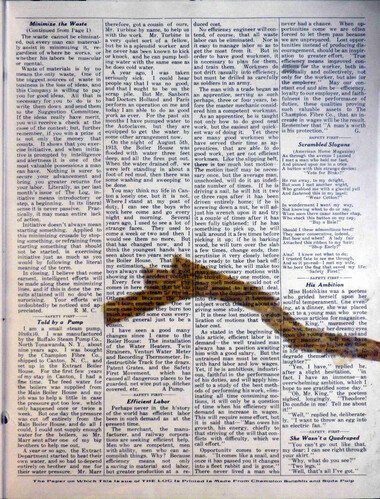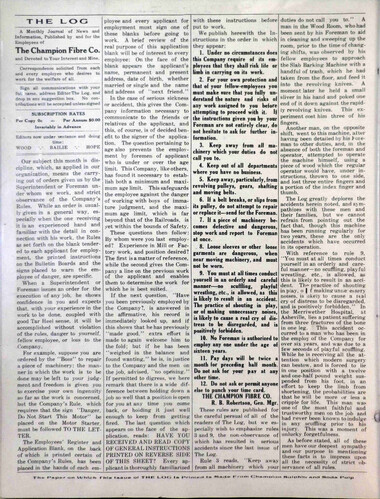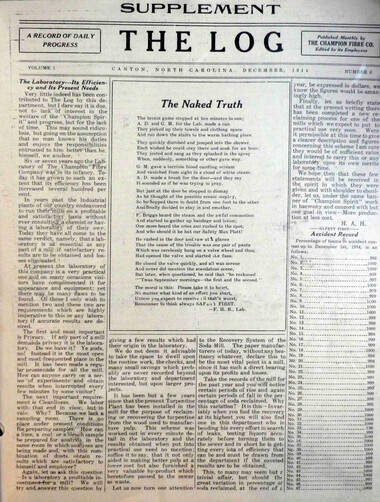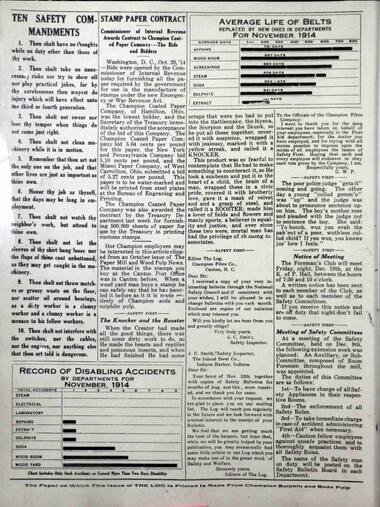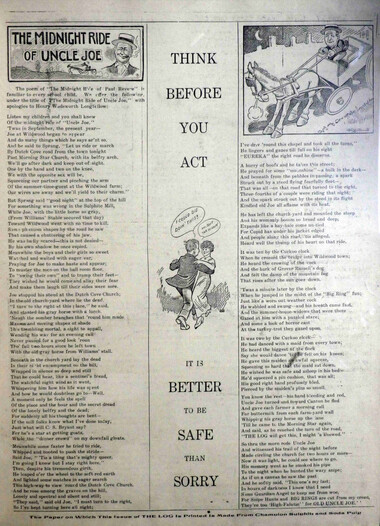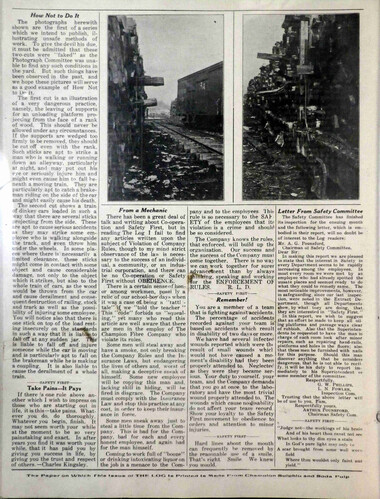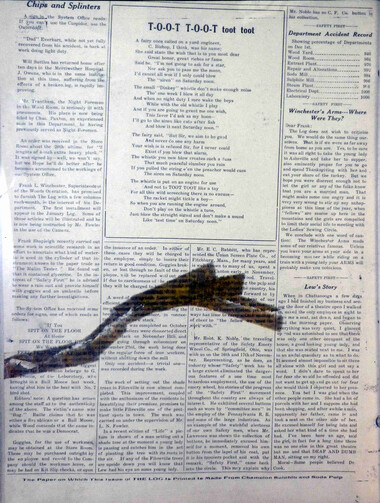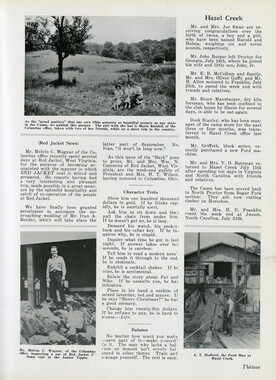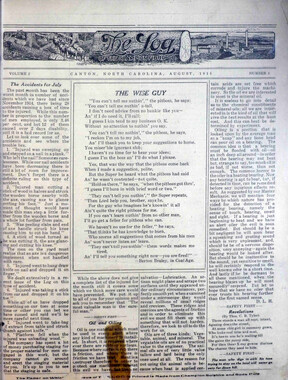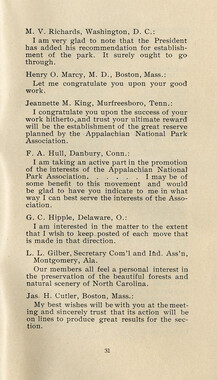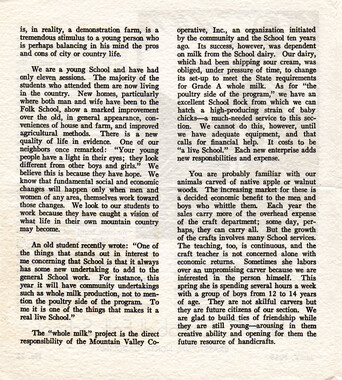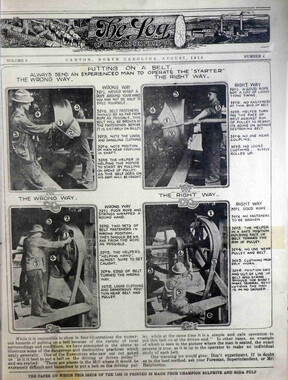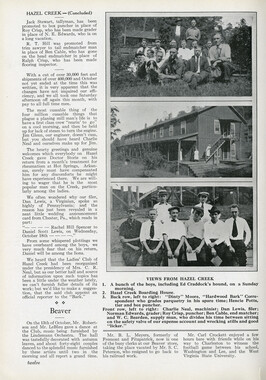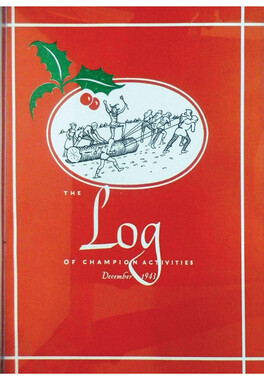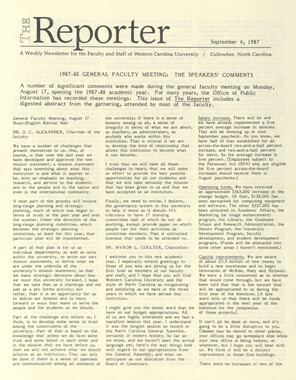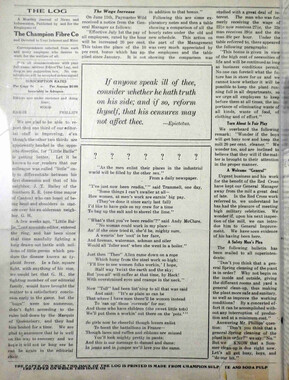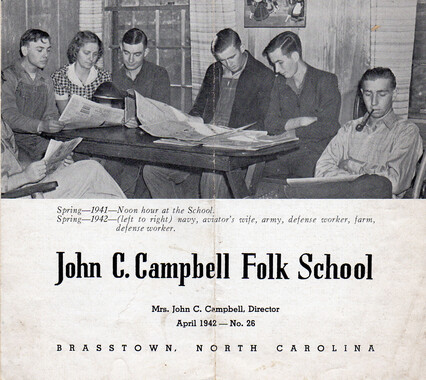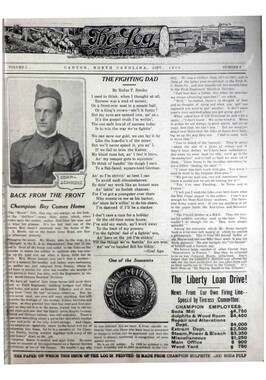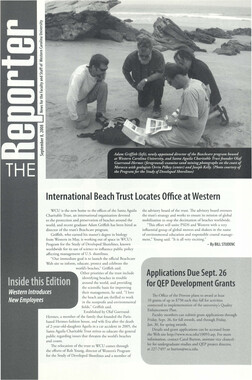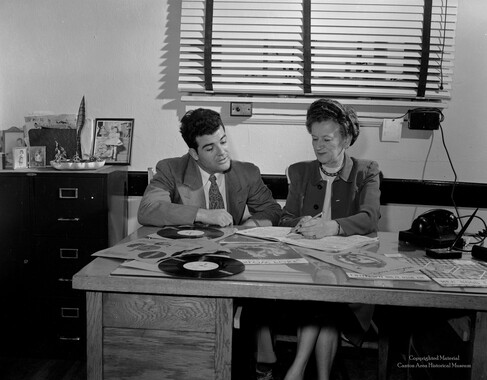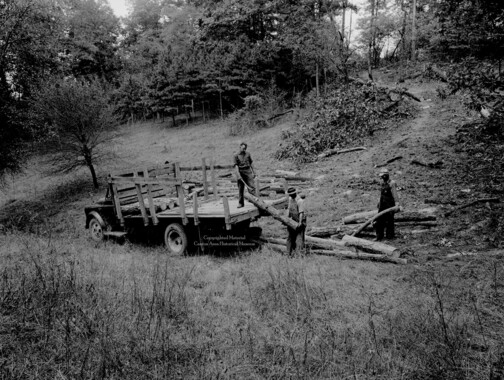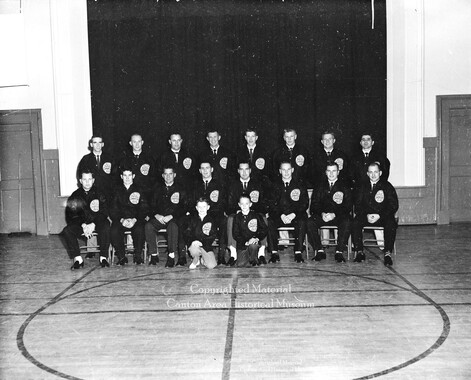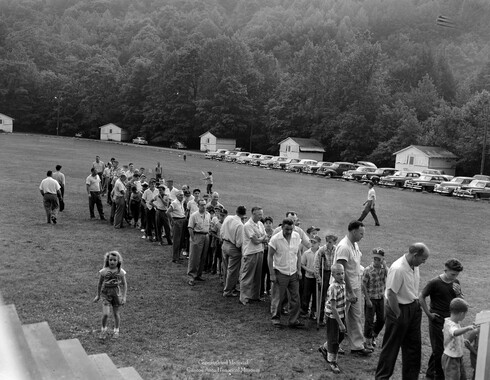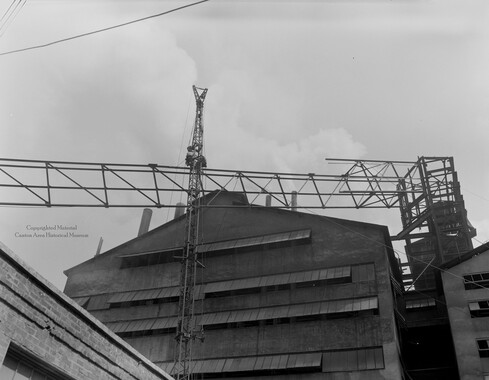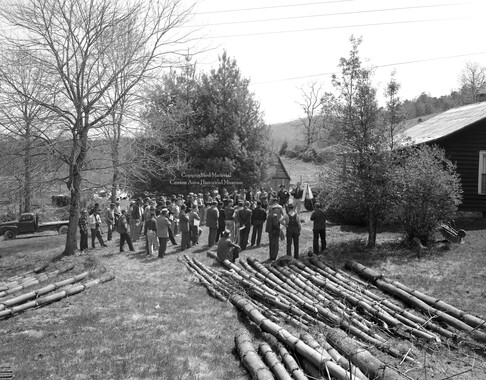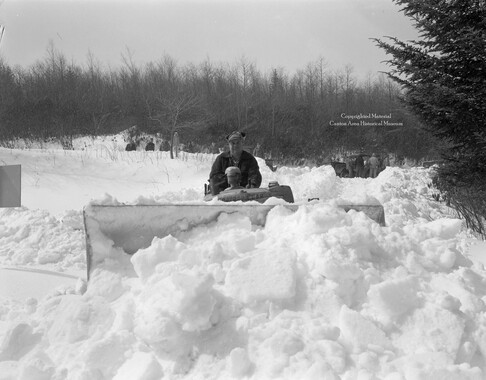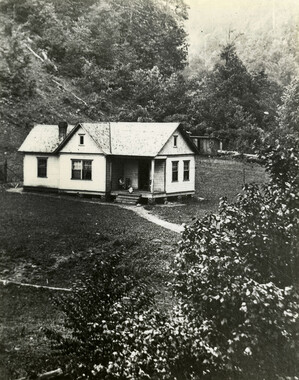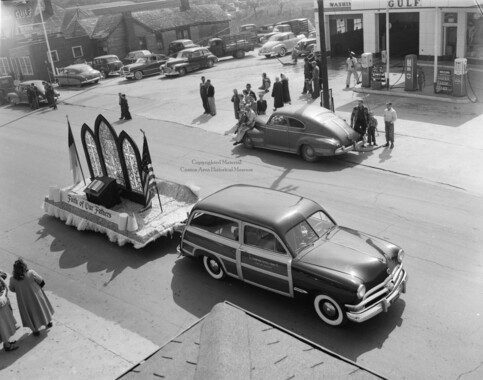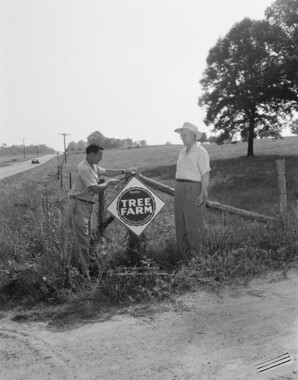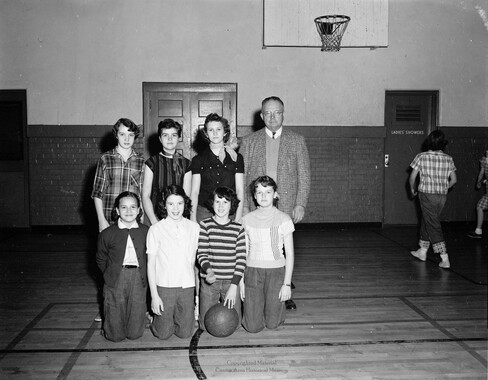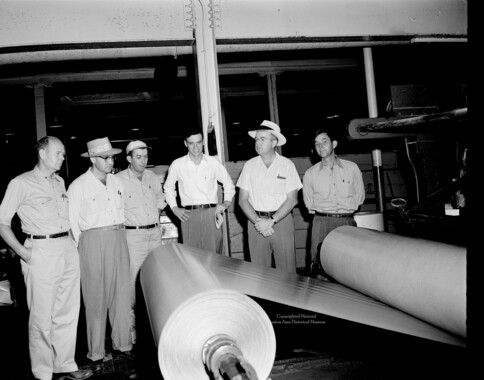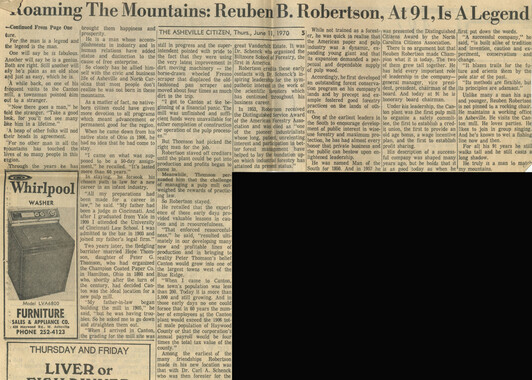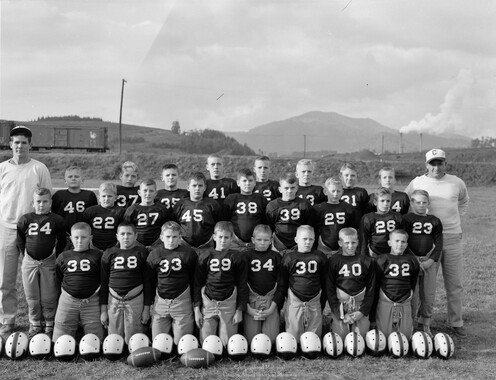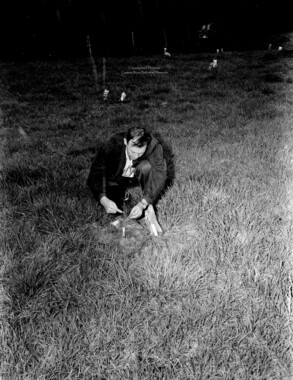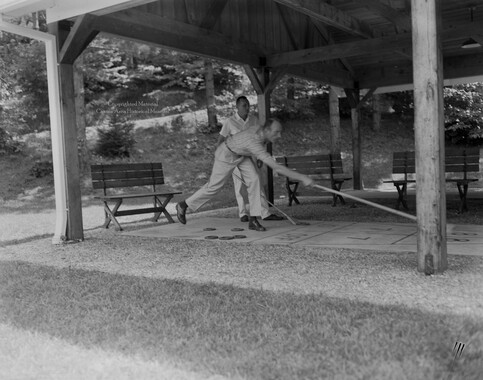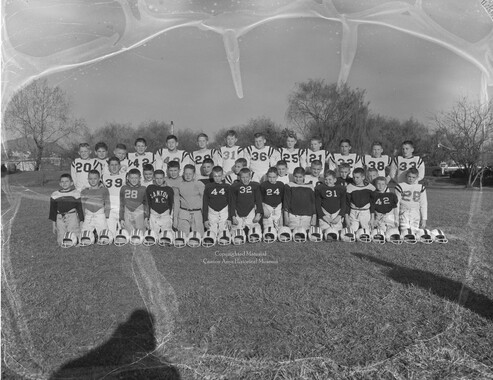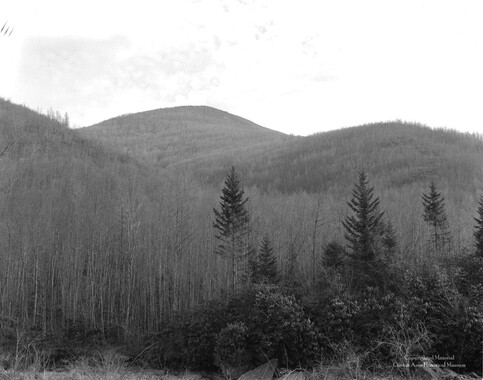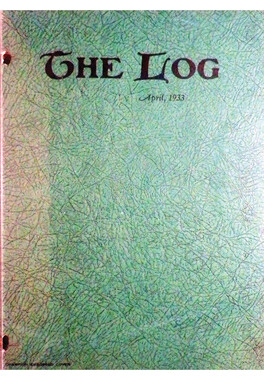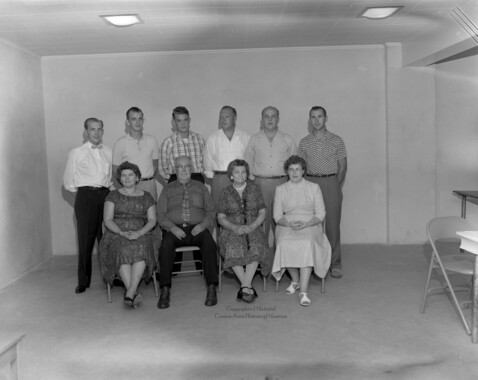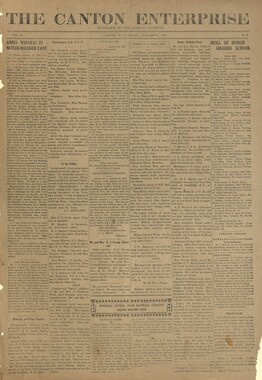Western Carolina University (9)
View all
- Canton Champion Fibre Company (519)
- Cherokee Traditions (1)
- Craft Revival (47)
- Great Smoky Mountains - A Park for America (12)
- Highlights from Western Carolina University (39)
- Journeys Through Jackson (154)
- Picturing Appalachia (1)
- Western Carolina University Publications (510)
- World War II in Southern Appalachia (2)
- Civil War in Southern Appalachia (0)
- Horace Kephart (0)
- LGBTQIA+ Archive of Jackson County (0)
- Oral Histories of Western North Carolina (0)
- Stories of Mountain Folk (0)
- Travel Western North Carolina (0)
- Western Carolina University Fine Art Museum Vitreograph Collection (0)
- Western Carolina University Herbarium (0)
- Western Carolina University: Making Memories (0)
- Western Carolina University Restricted Electronic Theses and Dissertations (0)
- Western North Carolina Regional Maps (0)
University of North Carolina Asheville (0)
View all
- Faces of Asheville (0)
- Forestry in Western North Carolina (0)
- Grove Park Inn Photograph Collection (0)
- Isaiah Rice Photograph Collection (0)
- Morse Family Chimney Rock Park Collection (0)
- Picturing Asheville and Western North Carolina (0)
- Champion Fibre Company (228)
- Champion Paper and Fibre Company (291)
- Ensley, A. L. (Abraham Lincoln), 1865-1948 (1)
- Penland Weavers and Potters (2)
- Southern Highland Handicraft Guild (14)
- Western Carolina University (510)
- Allanstand Cottage Industries (0)
- Appalachian National Park Association (0)
- Bennett, Kelly, 1890-1974 (0)
- Berry, Walter (0)
- Brasstown Carvers (0)
- Cain, Doreyl Ammons (0)
- Carver, George Washington, 1864?-1943 (0)
- Cathey, Joseph, 1803-1874 (0)
- Cherokee Indian Fair Association (0)
- Cherokee Language Program (0)
- Crittenden, Lorraine (0)
- Crowe, Amanda (0)
- Edmonston, Thomas Benton, 1842-1907 (0)
- Fromer, Irving Rhodes, 1913-1994 (0)
- George Butz (BFS 1907) (0)
- Goodrich, Frances Louisa (0)
- Grant, George Alexander, 1891-1964 (0)
- Heard, Marian Gladys (0)
- Kephart, Calvin, 1883-1969 (0)
- Kephart, Horace, 1862-1931 (0)
- Kephart, Laura, 1862-1954 (0)
- Laney, Gideon Thomas, 1889-1976 (0)
- Masa, George, 1881-1933 (0)
- McElhinney, William Julian, 1896-1953 (0)
- Niggli, Josephina, 1910-1983 (0)
- North Carolina Park Commission (0)
- Osborne, Kezia Stradley (0)
- Owens, Samuel Robert, 1918-1995 (0)
- Rhodes, Judy (0)
- Roberts, Vivienne (0)
- Roth, Albert, 1890-1974 (0)
- Schenck, Carl Alwin, 1868-1955 (0)
- Sherrill's Photography Studio (0)
- Smith, Edward Clark (0)
- Southern Highlanders, Inc. (0)
- Stalcup, Jesse Bryson (0)
- Stearns, I. K. (0)
- Thompson, James Edward, 1880-1976 (0)
- United States. Indian Arts and Crafts Board (0)
- USFS (0)
- Vance, Zebulon Baird, 1830-1894 (0)
- Weaver, Zebulon, 1872-1948 (0)
- Western Carolina College (0)
- Western Carolina Teachers College (0)
- Western Carolina University. Mountain Heritage Center (0)
- Whitman, Walt, 1819-1892 (0)
- Wilburn, Hiram Coleman, 1880-1967 (0)
- Williams, Isadora (0)
- 1890s (1)
- 1900s (2)
- 1910s (71)
- 1920s (97)
- 1930s (138)
- 1940s (141)
- 1950s (120)
- 1960s (11)
- 1970s (106)
- 1980s (135)
- 1990s (168)
- 2000s (167)
- 2010s (120)
- 2020s (8)
- 1600s (0)
- 1700s (0)
- 1800s (0)
- 1810s (0)
- 1820s (0)
- 1830s (0)
- 1840s (0)
- 1850s (0)
- 1860s (0)
- 1870s (0)
- 1880s (0)
- Appalachian Region, Southern (54)
- Asheville (N.C.) (6)
- Buncombe County (N.C.) (4)
- Cherokee County (N.C.) (29)
- Great Smoky Mountains National Park (N.C. and Tenn.) (10)
- Haywood County (N.C.) (519)
- Jackson County (N.C.) (704)
- Mitchell County (N.C.) (6)
- Qualla Boundary (4)
- Swain County (N.C.) (10)
- Avery County (N.C.) (0)
- Blount County (Tenn.) (0)
- Clay County (N.C.) (0)
- Graham County (N.C.) (0)
- Henderson County (N.C.) (0)
- Knox County (Tenn.) (0)
- Knoxville (Tenn.) (0)
- Lake Santeetlah (N.C.) (0)
- Macon County (N.C.) (0)
- Madison County (N.C.) (0)
- McDowell County (N.C.) (0)
- Polk County (N.C.) (0)
- Rutherford County (N.C.) (0)
- Transylvania County (N.C.) (0)
- Watauga County (N.C.) (0)
- Waynesville (N.C.) (0)
- Yancey County (N.C.) (0)
- Aerial Photographs (3)
- Aerial Views (60)
- Albums (books) (4)
- Articles (1)
- Artifacts (object Genre) (228)
- Bibliographies (1)
- Biography (general Genre) (2)
- Cards (information Artifacts) (38)
- Clippings (information Artifacts) (191)
- Crafts (art Genres) (622)
- Depictions (visual Works) (21)
- Design Drawings (1)
- Drawings (visual Works) (184)
- Envelopes (73)
- Facsimiles (reproductions) (1)
- Fiction (general Genre) (4)
- Financial Records (12)
- Fliers (printed Matter) (67)
- Glass Plate Negatives (381)
- Guidebooks (2)
- Internegatives (10)
- Interviews (815)
- Land Surveys (102)
- Letters (correspondence) (1013)
- Manuscripts (documents) (618)
- Maps (documents) (177)
- Memorandums (25)
- Minutes (administrative Records) (59)
- Negatives (photographs) (5835)
- Newsletters (1285)
- Newspapers (2)
- Occupation Currency (1)
- Paintings (visual Works) (1)
- Pen And Ink Drawings (1)
- Periodicals (193)
- Personal Narratives (10)
- Photographs (12976)
- Plans (maps) (1)
- Poetry (6)
- Portraits (4533)
- Postcards (329)
- Programs (documents) (151)
- Publications (documents) (2236)
- Questionnaires (65)
- Scrapbooks (282)
- Sheet Music (2)
- Slides (photographs) (402)
- Songs (musical Compositions) (2)
- Sound Recordings (796)
- Specimens (92)
- Speeches (documents) (15)
- Tintypes (photographs) (8)
- Transcripts (322)
- Video Recordings (physical Artifacts) (23)
- Vitreographs (129)
- Text Messages (0)
- A.L. Ensley Collection (1)
- Appalachian Industrial School Records (3)
- Appalachian National Park Association Records (1)
- Canton Area Historical Museum (517)
- Horace Kephart Collection (1)
- John C. Campbell Folk School Records (28)
- The Reporter, Western Carolina University (510)
- Axley-Meroney Collection (0)
- Bayard Wootten Photograph Collection (0)
- Bethel Rural Community Organization Collection (0)
- Blumer Collection (0)
- C.W. Slagle Collection (0)
- Carlos C. Campbell Collection (0)
- Cataloochee History Project (0)
- Cherokee Studies Collection (0)
- Daisy Dame Photograph Album (0)
- Daniel Boone VI Collection (0)
- Doris Ulmann Photograph Collection (0)
- Elizabeth H. Lasley Collection (0)
- Elizabeth Woolworth Szold Fleharty Collection (0)
- Frank Fry Collection (0)
- George Masa Collection (0)
- Gideon Laney Collection (0)
- Hazel Scarborough Collection (0)
- Hiram C. Wilburn Papers (0)
- Historic Photographs Collection (0)
- Humbard Collection (0)
- Hunter and Weaver Families Collection (0)
- I. D. Blumenthal Collection (0)
- Isadora Williams Collection (0)
- Jesse Bryson Stalcup Collection (0)
- Jim Thompson Collection (0)
- John B. Battle Collection (0)
- John Parris Collection (0)
- Judaculla Rock project (0)
- Kelly Bennett Collection (0)
- Love Family Papers (0)
- Major Wiley Parris Civil War Letters (0)
- Map Collection (0)
- McFee-Misemer Civil War Letters (0)
- Mountain Heritage Center Collection (0)
- Norburn - Robertson - Thomson Families Collection (0)
- Pauline Hood Collection (0)
- Pre-Guild Collection (0)
- Qualla Arts and Crafts Mutual Collection (0)
- R.A. Romanes Collection (0)
- Rosser H. Taylor Collection (0)
- Samuel Robert Owens Collection (0)
- Sara Madison Collection (0)
- Sherrill Studio Photo Collection (0)
- Smoky Mountains Hiking Club Collection (0)
- Stories of Mountain Folk - Radio Programs (0)
- Venoy and Elizabeth Reed Collection (0)
- WCU Gender and Sexuality Oral History Project (0)
- WCU Mountain Heritage Center Oral Histories (0)
- WCU Oral History Collection - Mountain People, Mountain Lives (0)
- WCU Students Newspapers Collection (0)
- Western North Carolina Tomorrow Black Oral History Project (0)
- William Williams Stringfield Collection (0)
- Zebulon Weaver Collection (0)
- Artisans (1)
- Dams (3)
- Dance (1)
- Education (68)
- Floods (5)
- Forest conservation (37)
- Forests and forestry (11)
- Great Smoky Mountains National Park (N.C. and Tenn.) (6)
- Hunting (6)
- Logging (2)
- Paper industry (4)
- Railroad trains (1)
- Sports (160)
- Weaving -- Appalachian Region, Southern (2)
- Wood-carving -- Appalachian Region, Southern (1)
- World War, 1939-1945 (44)
- African Americans (0)
- Appalachian Trail (0)
- Cherokee art (0)
- Cherokee artists -- North Carolina (0)
- Cherokee language (0)
- Cherokee pottery (0)
- Cherokee women (0)
- Church buildings (0)
- Civilian Conservation Corps (U.S.) (0)
- College student newspapers and periodicals (0)
- Folk music (0)
- Forced removal, 1813-1903 (0)
- Gender nonconformity (0)
- Landscape photography (0)
- Maps (0)
- Mines and mineral resources (0)
- North Carolina -- Maps (0)
- Postcards (0)
- Pottery (0)
- Rural electrification -- North Carolina, Western (0)
- School integration -- Southern States (0)
- Segregation -- North Carolina, Western (0)
- Slavery (0)
- Storytelling (0)
- Waterfalls -- Great Smoky Mountains (N.C. and Tenn.) (0)
- StillImage (1)
- Text (1284)
- MovingImage (0)
- Sound (0)
The Log Vol. 1 No. 8
Item
Item’s are ‘child’ level descriptions to ‘parent’ objects, (e.g. one page of a whole book).
-
-
Minimize the Waste (Continued from l'age I) The waste cannot be eliminated. Out every man can materially assist in minimising it, regardless of where he works, or whether his labors be muscular there!.. of or ntal. Waste of materials is b\ no means the only waste, One of tne uiggest sources of waste in business is the loss of ideas, ami this Company is willing to pay you for good ideas. All that is necessary for you to do is to write them down and send them to the Suggestion Committee. If the ideas really have merit, you will receive a check at the ciose of the contest: but. further remember, if you win a prize it is not only the money that counts. It shows that you exercise initiative, and when initiative is prompted by intelligence and alertness it is one of the most valuable possessions a man can have. Nothing is surer to secure your advancement and bring you greater returns for your labor. Literally, as per last month's issue of The Log, initiative means introductory or step, a beginning. In its literal sense it is never passive. Practically, it may mean entire lack of action. Initiative doesn't always mean starting something. Applied to this minimizing crusade by stop- ing something, or refraining from starting something that should not be started, is exercising initiative just as much as you would by following the literal meaning of the term. In closing, I believe that some earnest, intelligent efforts will be made along these minimizing lines, and if this is done the results attained will no doubt be surnrising. Your efforts will ur doubted I v be noticed and appreciated. " R M. C. Told by a Pump I am a small steam pump, 10x6x10. I was manufactured by the Buffalo Steam Pump Co., North Tynawanda, N. Y.. about nine years ago. I was bought by the Champion Fibre Co., shipped to Canton, N. C, and set up in the Extract Boiler House. For the first few years of my stay in Canton, I had a fine time. The feed water for the boilers was supplied from the Main Boiler House and my job was to help a little in case the pressure got too low. which only happened once or twice a week. But one day the pressure was cut off entirely from the Main Boiler House, and do all I could, I could not supply enough water for the boilers, so Mr. Marr sent after one of my big brothers to help me out. A | ear or so ago, the Extract Department started to heat their own water, and so had to depend entirely on brother and me for their water pressure Mr. Marr turbine by name, to help us ith the work. Mr. Turbine is a very quiet sort of a fellow, but he is a splendid worker and he never has been known to kick or knock, and he can pump boiling water with the same ease as he does cold water. A year ago, 1 was taken seriously sick. I eould hear people say that I was no good, and that 1 ought to be on the scrap pile. But Mr. Sanborn had Doctors Holland and Paris perform an operation on me and today I am able to do as good work as ever. For the past six months I have pumped water to the Autoclaves, but they are equipped to get the water by some other arrangement now. On the night of August 5th, 1913, the Boiler House was flooded with water three feet deep, and all the fires put out. When the water drained off. we were left standing in about a foot of red mud, then there was some washing and sweeping to be done You may think my life in Canton a lonely one, but it is not. Where I stand at my post of duty, I can see the boys who work here come and go every night and morning. Several years ago, 1 used to see a lot of strange faces. They used to come a week or two and then I would see them no more. But that has changed now, and I think the youngest hands have seen about two years ser< ' the Boiler House. Thatj my estimationj^the r< boys always showing in th< Every few comes in here not got ei or ne or ey burn too some cuss every- general just to be a ;sin. I have seen a good many changes since I came to the Boiler House: The installation of the Water Heaters, Twin Strainers, Venturi Water Meter and Recording Thermometer, Indestructible Track for the drags. Patent Grates, and the Safety First Movement, which has caused all dangerous places to be guarded, net wire put up, ditches covered, etc. A Pump. SAFKTY FIRST Efficient Labor Perhaps never in the h'story of the world has efficient labor been in such demand as at the present time. The merchant, the manufacturer, and railway corporations are seeking efficient help. Men who are competent, men with ability, men who can accomplish things. Why? Because efficiency means not only a saving in material and labor, but greater production at a re- duced cost. No efficiency engineer will contend, of course, that all waste labor can be eliminated. Nor is it easy to manage labor so as to get the most from it. But in order to have good workmen, it is necessary to plan for them, and train them. Workmen do not drift casually into efficiency, but must be drilled as carefully as soldiers in an army. The man with a trade began as an apprentice, serving as such perhaps, three or four years, before the master mechanic considered him a competent workman. As an apprentice, he is taught] not only how to do good neat work, but the easiest and quickest way of doing it. Yet there are many good workmen who have served their time as apprentices, that are able to do good work, yet are not efficient workmen. Like the slipping belt, there is too much lost motion The motion itself may be necessary once, but the average man, unschooled, will do it an indefi- nate number of times. If he is driving a nail, he will hit it two or three raps after it has been driven entirely home; if he is screwing down a nut, he will adjust his wrench upon it and try it a couple of times after it has been fully tightened; if he has something to pick up, he will walk around it a few times before picking it up; if he is barking wood, he will turn over the slab a few times, change ends, then scrutinize it very closely before he is ready to take the bark off ing brick, he will make too sary motions with one motion, or mid not of ,t deal subject worl giving some study It is these lost motions lication of motions that labor cost. As stated in the beginning this article, efficient labor is in demand -the well trained man always has a position awaiting| him with a good salary. But the untrained man must be content| with hard labor and low wages. Yet, if he is ambitious, industri ous, faithful in the performance] of his duties, and will apply himself to a study of the best methods of performing his work, eliminating all time consuming motions, it will only be a question of time when his efficiency will demand an increase in wages. This will require some effort, but it is said that—"Man owes his growth, his energy, chiefly to that striving of the will that conflicts with difficulty, which we call effort." Opportunity comes to every man. "It comes like a snail, and once it has passed you it changes into a fleet rabbit and is gone." There never lived a man who never had a chance. When opportunities come we are often forced to let them pass because are unprepared. I^ost opportunities instead of producing discouragement, should be an inspiration to greater effort. "True efficiency means improved condition* for the worker, both individually and collective] only for the worker, bul the employer." May our constant end and aim be- efficiency, loyalty to our employer, and faithfulness! in the performance of duties, these qualities proving such valuable assets to The Champion Fibre Co., that an increase in wages wfilbetherefto.lt. Remember that "A man's worth is his protection." G. SAFETY FIRST— Scrambled Slogans (American Home Magazine) As through the avenue I passed I met a man who held me fast. And pinned upon n MS. "Vote ft He ran away, to my delight, But soon 1 met another wight, Who grabbed me with » gleetul yell And fastened this in my lapel: "Wear Cotton!" In wonderment I went my way, Not knowing what to do or say, When soon there came another chap, Who stuck this button on my cap: "Buy a Bale!" Should I these admonitions heed? They seeir consecutive, indeed, But how and when? A lady fail- Attached this ribbon to my hair: "Sh.,p Early!" Alas! I knew not what to do; I trusted fate to see me through, And so it proved- I met my wife, Who bore the flag that saved my life: "Safety First!" SAFETY FIRST His Ambition Miss Hotchkiss was a poetess who prided herself upon her soulful temperament. One even-* ng, at a dinner, she was placed t to a young man who wrote .reus articles for magazines. King," murmered the her dreamy eyes ' and in life^ degrade thenis* laughter?" "Yes, I have," replied he, after a slight hesitation, "in fact. I have an immense—an overwhelming ambition, which I hope to see gratified some day." "Oh. Mr. King," the poetess sighed, longingly, "Theodore! Do confide in me! Tell me about it!" "Well," replied he. deliberately. "I want to throw an egg into an electric fan." SAFETY FIRST She Wasn't a Quadruped "You can't go out like that, my dear; I can see right through your skirt." "Why, what do you see?" ' 'Two legs.'' "Well, that's all I've got." i l_«_>0 I* »-.!.,.*-.• I* *t*«c*« Pron
Object
Object’s are ‘parent’ level descriptions to ‘children’ items, (e.g. a book with pages).
-
Between 1914 and the late 1960s, the Champion Fibre Company published an internal newsletter, called The Log, to share news about the Canton mill, the community, and its employees. After 1940, news from the entire “Champion Family,” which included mills in Hamilton, Ohio; Houston, Texas and Sandersville, Georgia, was featured in each issue.
-
